Two sides to every story: Northview and the 2020 election
Two Northview students share their political views and the importance of political activism during this presidential election. Sanjana Gopu, Staff Writer and Anshi Vajpayee, Opinions Editor
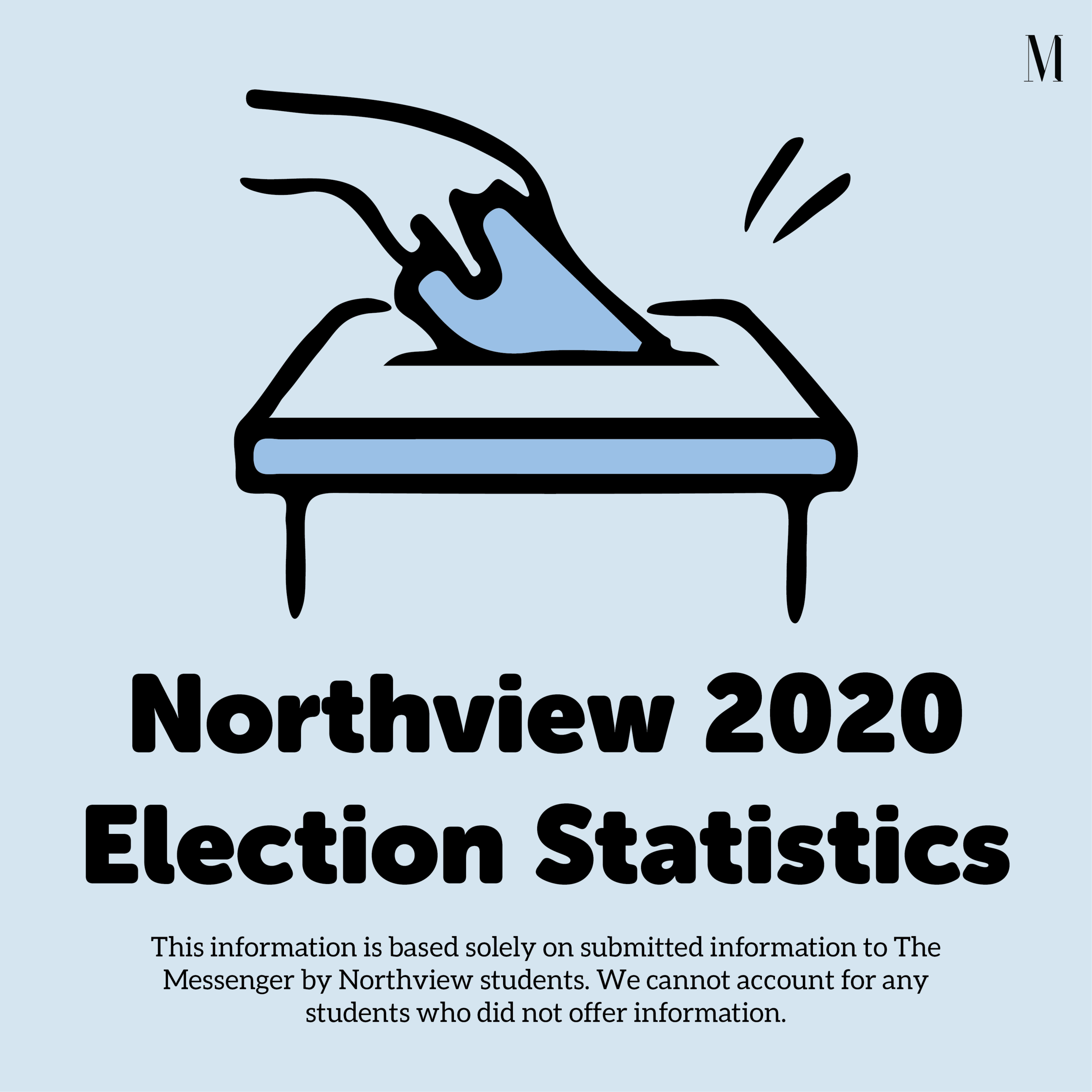
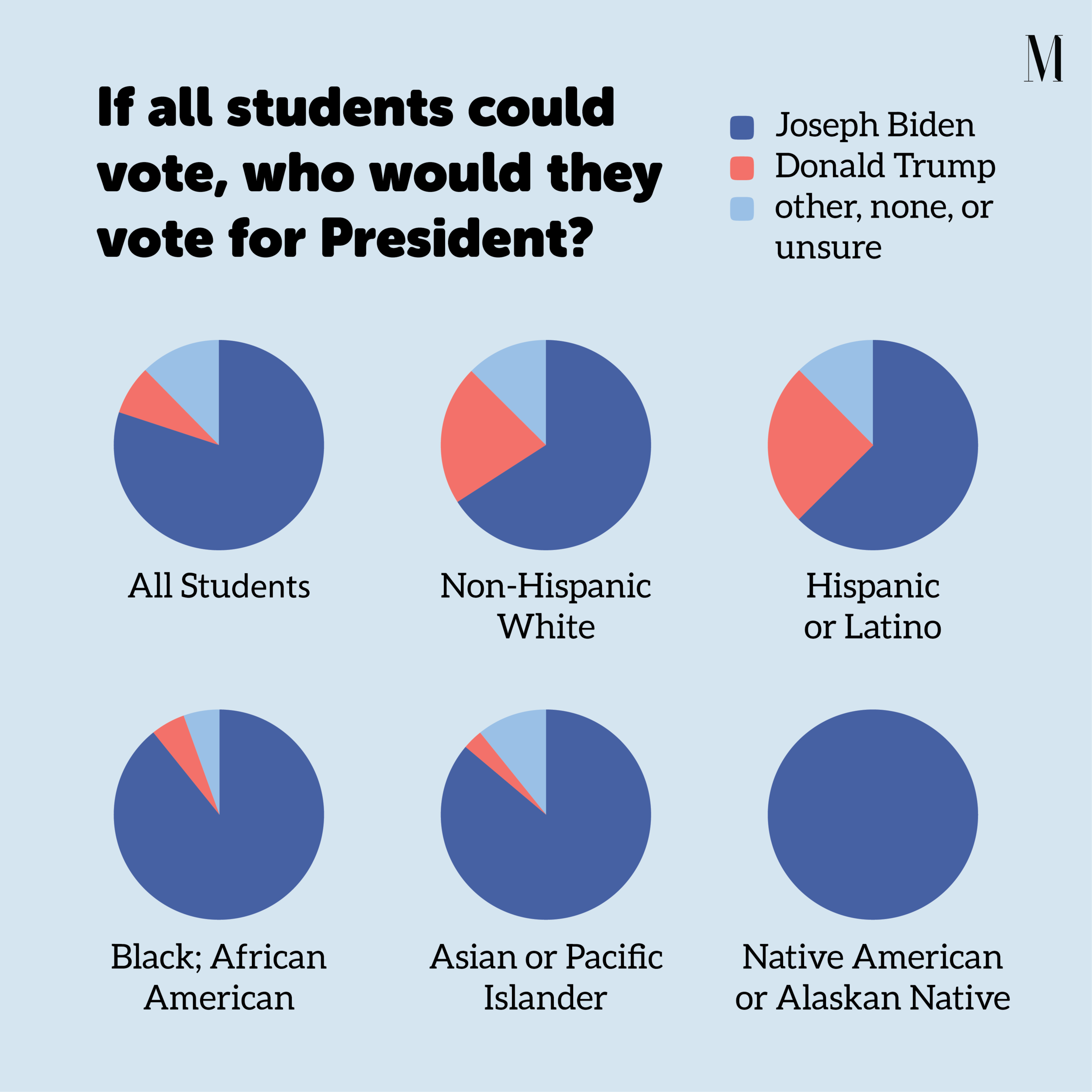
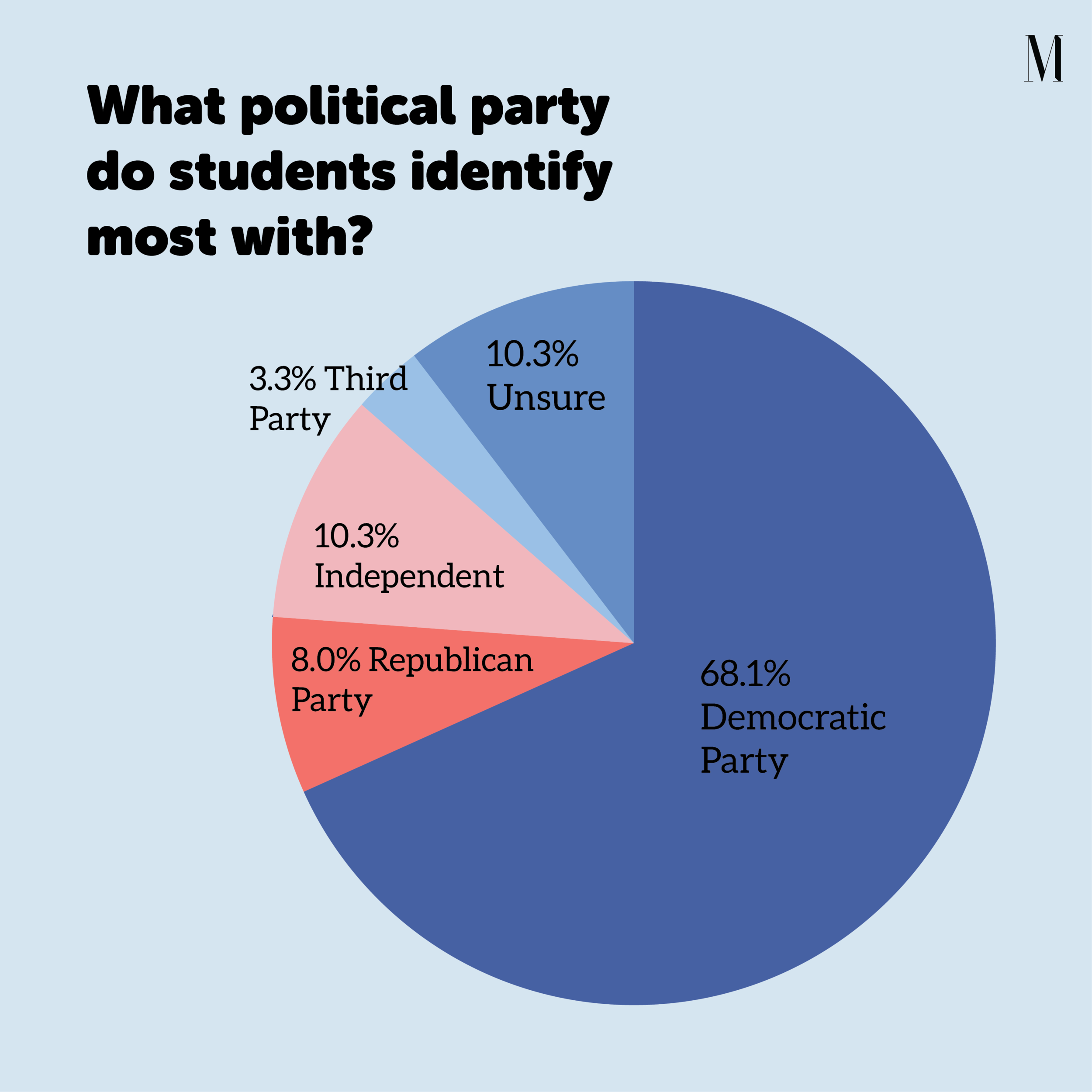
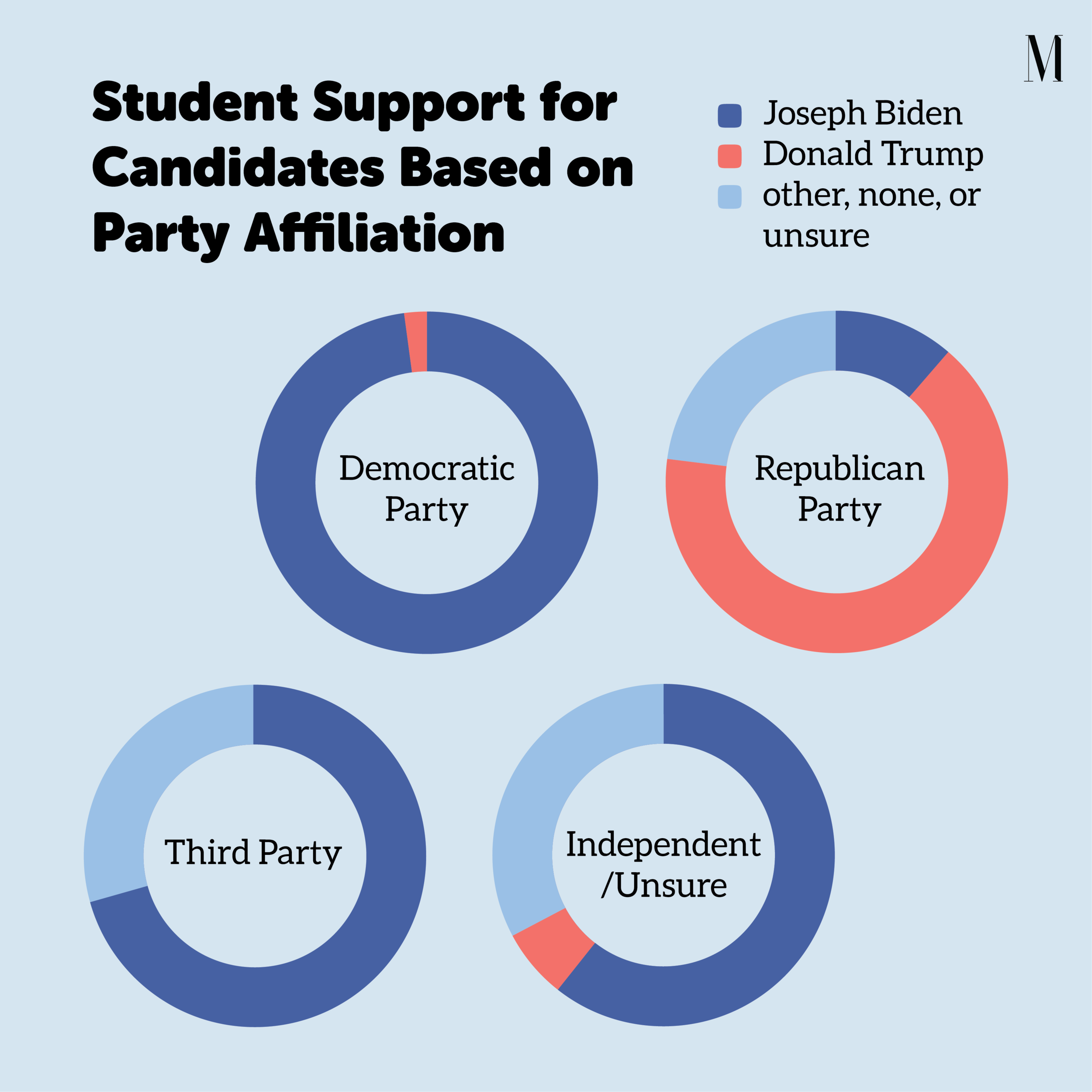
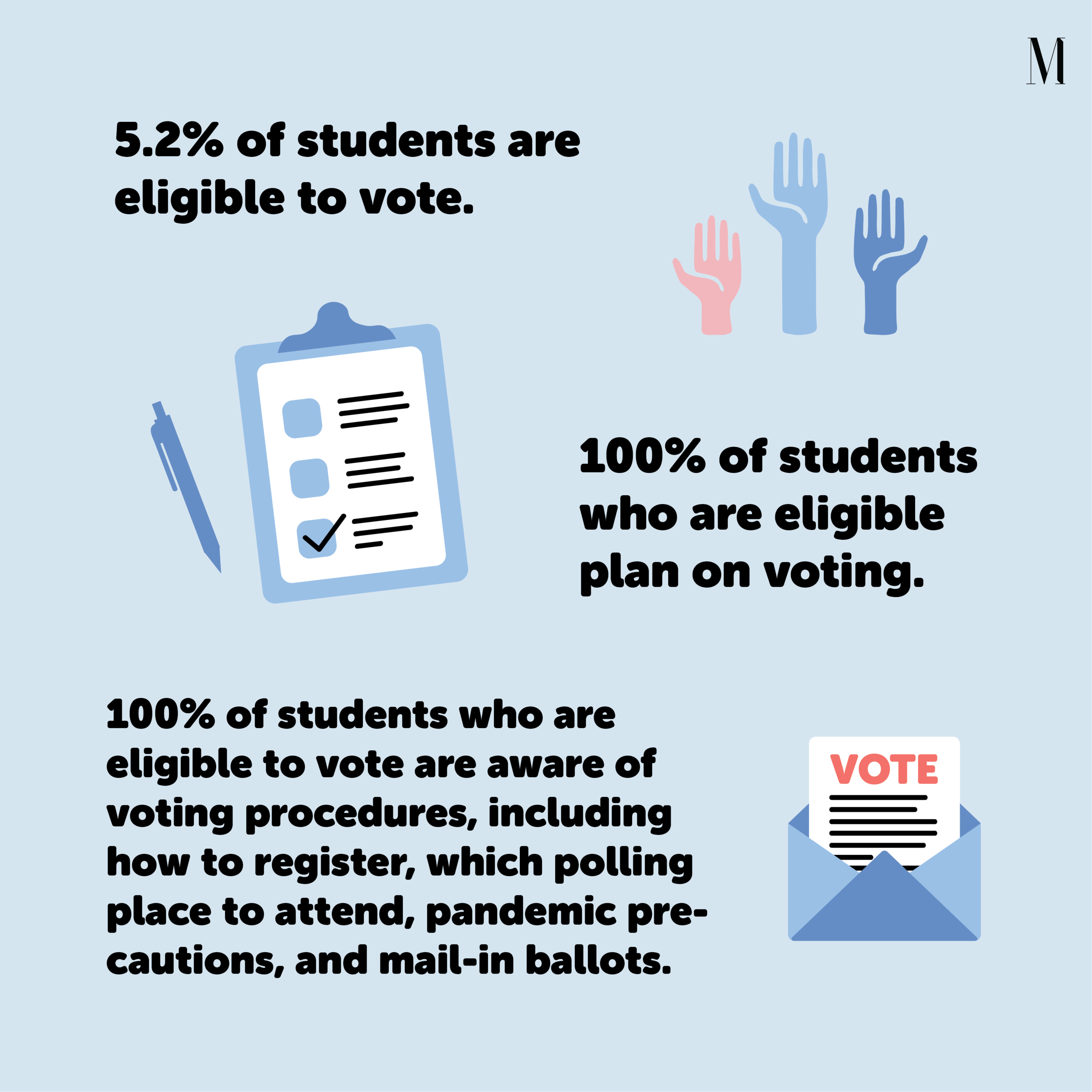
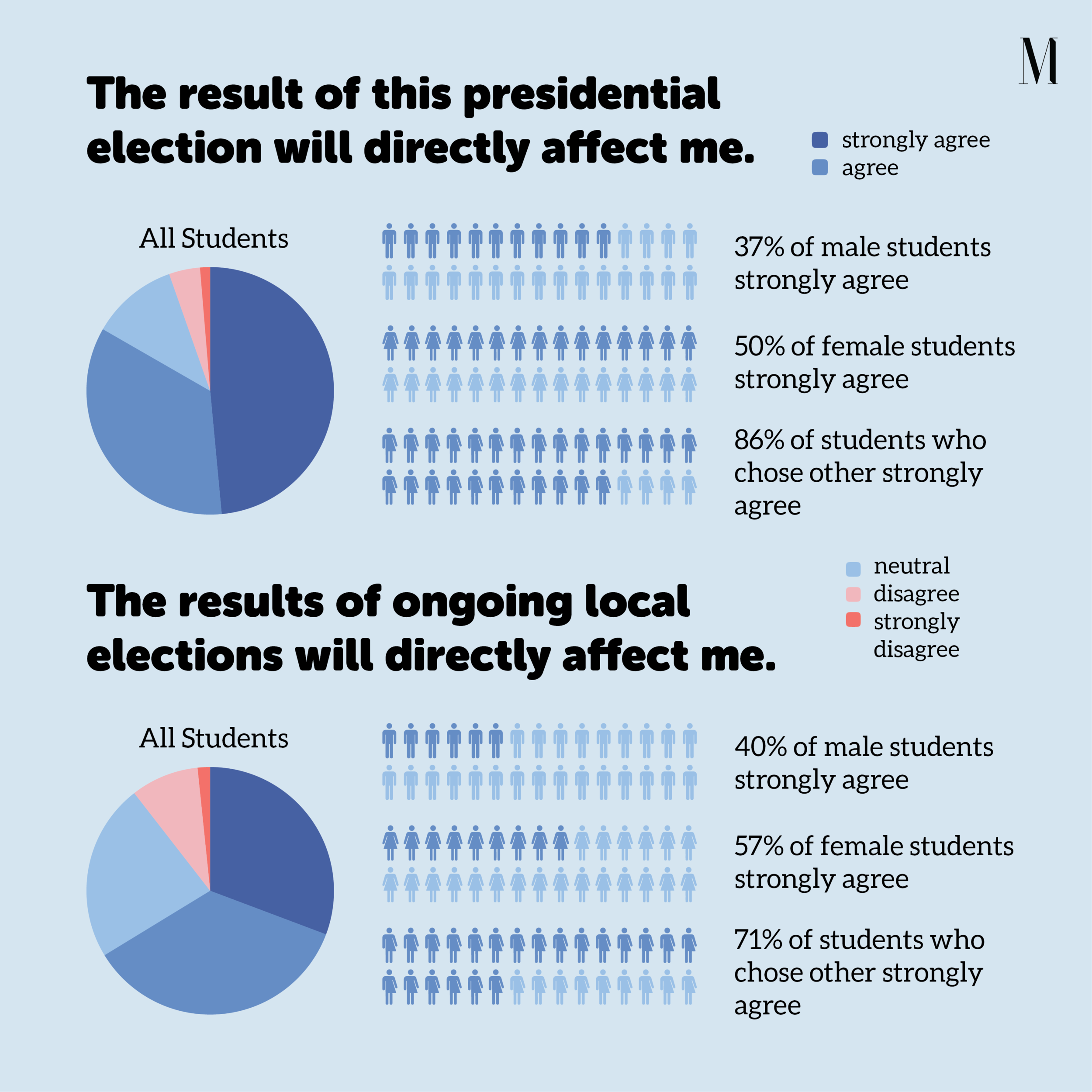
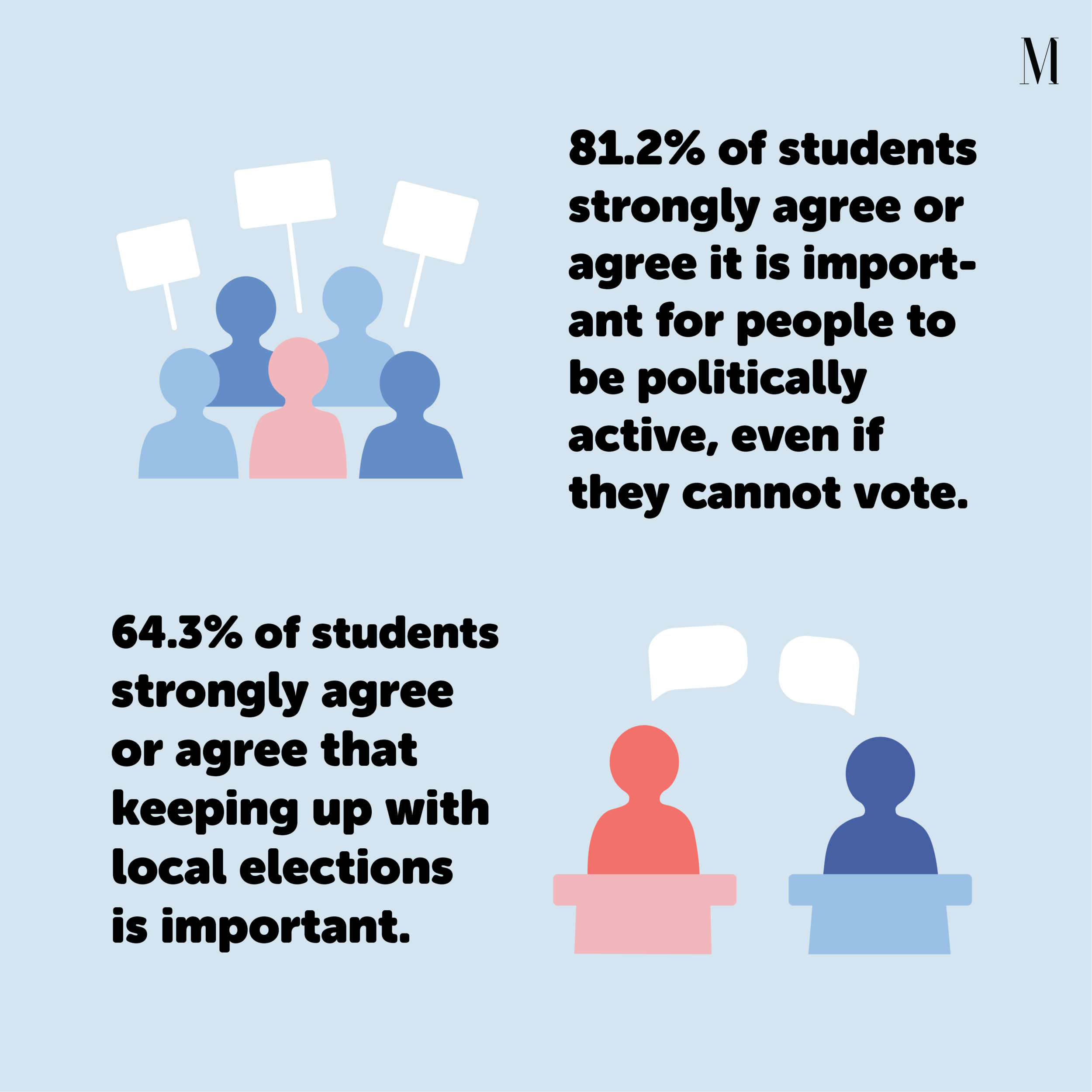
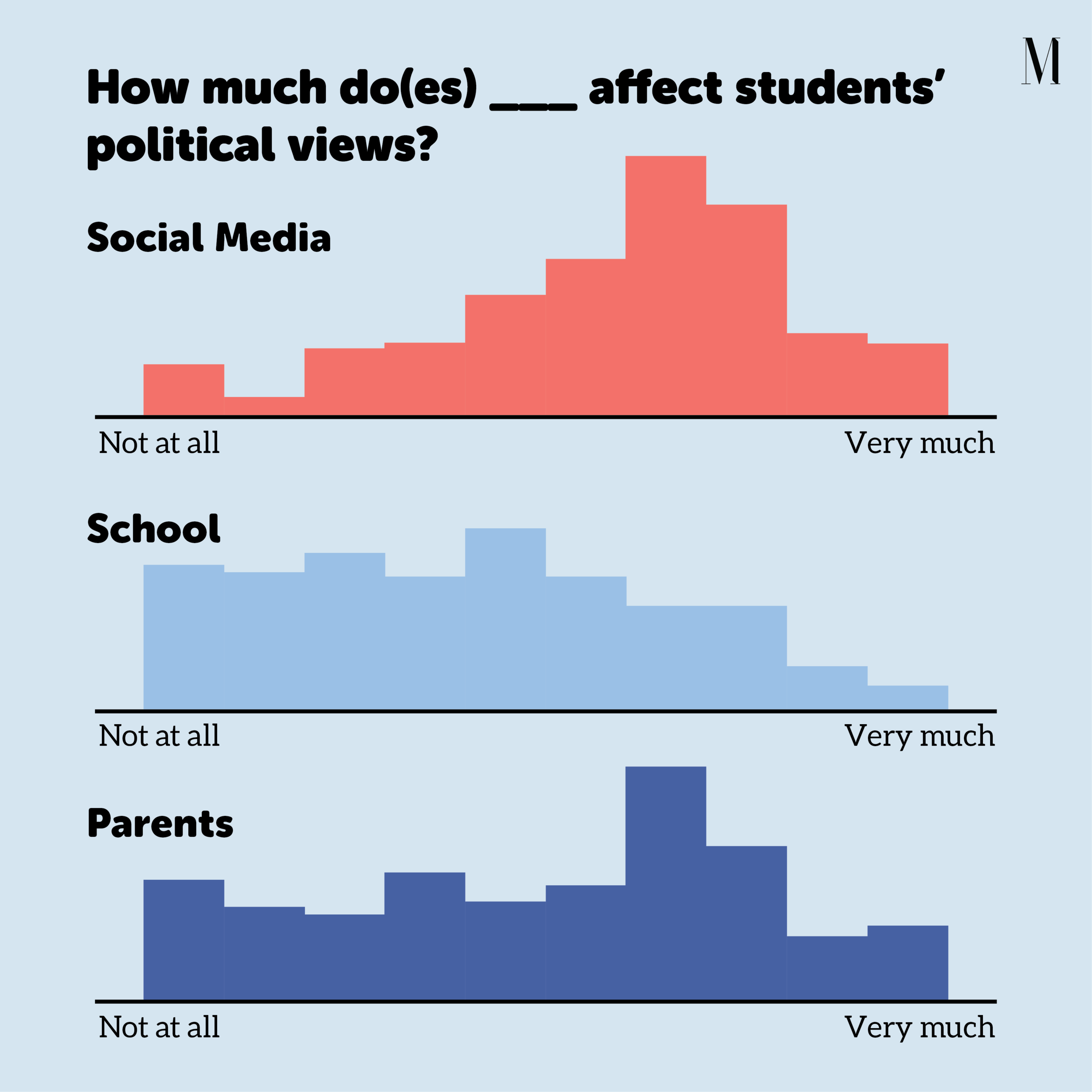
Graphic by Melissa Liu, Managing Design Editor
In the midst of the uncertainty and challenges the COVID-19 pandemic has brought, the election season persists, leaving no room for the American people to catch their breath and find their way past an increasingly disillusioned political climate. Between Republican Incumbent Donald J. Trump and former Vice President Joseph R. Biden, Georgia has found itself in swing-state territory with a potential party realignment, the first to occur in the past 28 years.
With less than four days away from Election Day, both Trump and Biden tirelessly continue to hold rallies, flood the screens with advertisements, and mail in an array of campaign cards. This election is especially important for Georgians and might signal a Democratic majority in a previously Republican stronghold as polling results continue to narrow Trump’s close path to victory.
Georgia has not one, but two highly competitive Senate races this year. The first is between Republican incumbent David Perdue and Democratic candidate Jon Ossoff, who both face-off in a fierce battle for the seat, primarily tackling issues regarding healthcare and the pandemic. The second is Georgia’s 2020 special U.S. senate election following the retirement of former U.S. Sen. Johnny Isakson, with over 20 candidates currently running in hopes to win the Senate seat currently held by U.S. Sen. Kelly Loeffler who was handpicked by Gov. Brian Kemp to replace Sen. Isakson. The notable candidates running are incumbent Loeffler, Republican Rep. Doug Collins, and Democrat Rev. Warnock.
Amidst the chaos in the election, two Northview students reflect on this unprecedented time and discover creative methods to remain politically active despite the physical separation.
Anoushka Misra
Senior Anoushka Misra has perhaps become the most resonant representation of social justice activism among Johns Creek highschoolers in the face of constant adversity. Misra is the secretary of the Johns Creek chapter and co-president of the Northview chapter of the High School Democrats of America (HSDA), which is not only an independent club but rather a small part of a bigger national organization that attracts young activists seeking legislative change through the Democratic party. Misra often promotes engaging in youth-led movements to implement social change outside the realms of social media activism.
“I know there are people who mean well when it comes to reposting political posts on social media, but I don't think that is effective unless you do some sort of tangible difference in society where you are doing something yourself that can be taken as change,” Misra said.
Misra turns her political association into concrete actions that spur genuine change by canvassing and phone banking for local democratic candidates candidates, writing postcards for the community to promote voter turnout, and regularly attending protests. Being the only eligible voter in Northview’s HSDA Club, Misra recognizes the reality of the current political climate is such that straying from politics altogether is nearly impossible. In fact, Misra believes political apathy among younger generations in and around Johns Creek stems from a place of privilege, largely from the notion that institutions seem impervious to the voice of a singular vote or the wishes of a small group of people.
“I think a lot of people assume that one vote is not going to make a difference in this election,” Misra said. “That's one big reason why I became so involved in politics. Youth engagement in politics is exactly what we need right now.”
Youth disengagement in politics is a major source of conflict for Misra. She refers to the fact that Generation Z and Millennials remain the least likely demographic to vote as a source of inspiration to advocate for issues specifically affecting younger generations, including gun control, the student debt crisis, and climate change. Because she witnessed the disastrous effects of gun violence early in her life, Misra’s views on gun control solidified by her teenage years.
“I definitely formed an opinion early on in my life after the Sandy Hook shooting, categorizing guns as a weapon of mass destruction, so I advocate for stronger gun control,” Misra said.
Misra hopes to end this continual pattern of low voter turnout among youth voters by raising awareness of important issues people are currently complacent about. She believes those who are ill-informed are more likely to remain apathetic, disregarding issues and comprehensive policy plans that relate to younger generations entirely. This vicious cycle of political apathy stretches beyond voting, as Misra notices stark partisan politics have turned even the most apolitical of issues, like reproductive rights and climate change, into strict politically-charged stances.
Misra poses with her “I’m a Georgia Voter” sticker after voting at Ocee Library.
Photo by Anoushka Misra, Special
“There are choices being made that can affect us for generations, affect our children and our grandchildren,” she said. “I think it is inevitably our responsibility to make sure change is enacted, and we are the people that make that change.”
Misra believes that in addition to low voter turnout, Georgia battles constant voter suppression, and new voters are left to resist the state’s most aggressive voter suppression tactics to disenfranchise black, indigenous, and people of color votes. This phenomenon is no exception to Misra, who has seen first-hand the long lines and harsh emphasis on state-issued photo identification when she visited Ocee Library to cast her ballot. In fact, a recent study conducted by The Quartz ranked Georgia 16th out of the 50 states in terms of difficulty to vote.
“Especially in the South, It's very hard to be able to vote. I noticed that if it takes us two hours to vote when this is something that is our constitutional right, you know that this is an establishment that is under-resourced,” Misra said. “It’s essentially corrupt.”
Misra’s profound liberal views on the political landscape and support for former Vice President Joe Biden are a result of her upbringing, as well as the influence of social media. Above all, though, Misra values her ability to form her own beliefs through her own efforts to research political issues and find unbiased sources to reinforce her claims.
“I think it’s been a lot of personal experiences, discussions with a lot of family members, social media, talking with friends, and developing my own personal opinions about these certain issues that I find are very important in my life and in the lives of other people.”
Ethan Mavrikas
Over time, Northview students have increasingly shown their interest in politics, shedding more light on the current issues in our country. The younger generation is beginning to impact the elections more than in previous years through various forms of activism. However, students often face conflicts about whether those who cannot vote should care about politics, in addition to the backlash they may receive for their views.
Junior Ethan Mavrikas reflects on the type of backlash he receives for having more conservative beliefs and supporting Donald Trump in this upcoming election.
“They don’t actually understand the political ideology behind it,” Mavrikas said, “Being a Republican doesn’t automatically make you a racist, sexist, or bigoted, or any of the other names. It doesn’t apply to me.”
He believes that while some right-wing extremists are guilty of discrimination, this notion should not apply to all Republicans. Mavrikas feels that far-right groups are also not as pervasive of an issue as they may seem, but due to social media, the platforms they are given amplify their presence.
He fears that young conservatives in the Johns Creek area could soon face suppression, even though he lives in a Republican state, the community has become more liberal in recent years. While he acknowledges that many older people are Republicans, he sees that as a member of the younger generation, conservatives are losing their voice amidst an increasingly liberal environment.
“A lot of the younger kids and whatnot that are soon about to be able to vote, have a very liberal voice, very democratic,” Mavrikas said. “There's been many cases where a Republican has lost his job for life, for no reason. It's really sad to see. It definitely shows the suppression for political views.”
Concerning youth engagement in politics, Mavrikas believes it is important to remain politically active since it can inform younger generations and help shape their political identities. He also encourages youth involvement across the political spectrum but believes the voting age should be raised, arguing that many young voters are not directly affected by the current political climate. He believes older employed adults better understand candidate policies and their impact as compared to younger generations, who tend to be more influenced by social media.
“Younger people, they’re more radical, not in their political ideology, but what they do. They’re still trying to find themselves,” Mavrikas said. “And in that process, it can be really bad for others.”
While most would assume that the younger generations are more liberal due to social media bias, Mavrikas feels the opposite is actually true for himself. Social media activism focuses more on social issues, something he believes activism directed towards elected officials cannot change, since they cannot do something themselves. From his perspective, politicians place false importance on these issues in the media to appeal to their audience; in reality, the presidency or other government office will not actually focus on social justice issues. Acts of social justice activism from candidates can easily sway young voters and place their trust in those who are unlikely to fulfill their promises, according to Mavrikas.
“They’ll say they care, when you’re face to face with them, they’ll say it. As soon as they look the other way, they’re not going to care,” Mavrikas said.
In the end, Mavrikas will continue to proudly promote his beliefs and support for the current president, which are a direct representative of his values, despite the backlash he may face.


